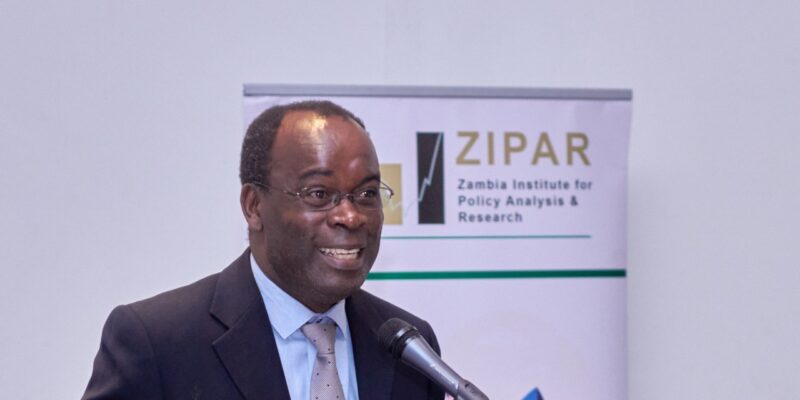A think tank has warned that upward adjustments of reserve requirements to enact monetary policy in a country like Zambia is detrimental as the country already has liquidity constraints.
According to the circular from the Bank of Zambia (BoZ) recently, the increased Statutory Reserve Ratio (SRR) was scheduled to be effective on February 13, 2023.
The Central Bank acted to address Kwacha volatility by adjusting the minimum statutory ratio on both local and foreign currency deposit.
This will also apply to government deposits and Vostro account deposits to be increased by 2.5 percentage points to 11.5 percent from the current nine percent.
Reacting to the circular, the Zambia Institute of Policy Analysis and Research (ZIPAR) warned that it would put pressure on the already high cost of funds.
The Institute through its Executive Director Herrick Mpuku, said the move implied that there would be reduced money supply in circulation.
“The upward revision to the SRR has potential to restrict commercial banks from lending out money to the private sector which may have a negative effect on private sector growth.
“Changes in reserve requirements also my lead to changes in pricing schedules for some bank services, because some bank fees and credits are set based on reserve requirements,” Mpuku told reporters on Monday in Lusaka.
He stated that there were several reasons why reserve requirements were not frequently changed.
He pointed out that the most important of which was that open market operations provided a much more precise tool for implementing monetary policy.
“The impact of changes in reserve requirements is difficult to estimate; each change has the potential to affect depository institutions in different ways, depending on each institution’s deposit base,” Mpuku said.
Read more: Bank of Zambia moves to prevent further fall in Kwacha value, as poor run persists
Going forward, he said, a combination of short term and long-term measures must be considered to achieve stability.
Mpuku explained that monetary policy may be potent in the short-term but would be impotent to deal with long-term structural issues such as economic diversification.
He said in the medium term, Government targeted to reduce domestic borrowing, a move expected to release liquidity in the economy.
Mpuku however said the Central Bank should be open about the ideal price of the dollar for the general public to be aware.
Further, he stated, government must expedite diversification of the country’s export base with a focus on value addition and higher productivity.
“This will improve export performance and increase forex earnings thereby arresting depreciation overtime. In this regard, the importance of structural transformation cannot be overemphasised. Lastly, to unlock resources for enhanced productivity, there is urgent need to concluding the debt restructuring process.
“With the economy forecasted to grow by four percent in the medium term, the high interest rates and reserve ratios may curb borrowing by the private sector which may hurt economic growth even further,” Mpuku said.
WARNING! All rights reserved. This material, and other digital content on this website, may not be reproduced, published, broadcast, rewritten or redistributed in whole or in part without prior express permission from ZAMBIA MONITOR













Comments